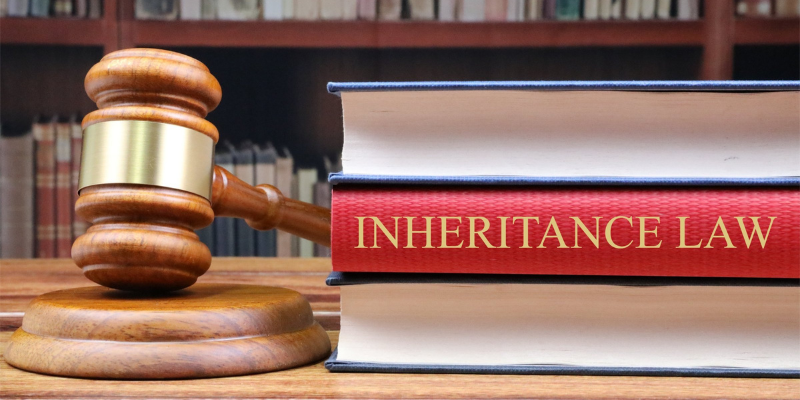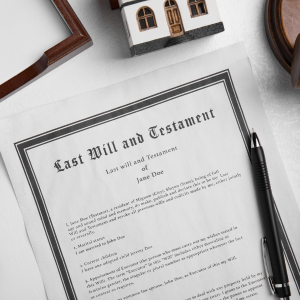
Understanding Inheritance Laws in Alberta, Canada: A Comprehensive Guide
Although Alberta’s laws regarding inheritance may seem complex at first, they highlight the estate owner’s intent and assist in the allocation and succession of assets in estate planning and the distribution of estate property. In Alberta, Canada, the Wills and Succession Act dictates how estates are administered after a person’s death.
The Act stipulates processes of estate management and estate succession with respect to property distribution. Regardless of a testator’s intent, property distribution is governed by intestacy laws if a will is absent. Property owners should appreciate that an estate may be subjected to default rules that may not correspond with the estate owner’s intent if a will is not provided.
The courts in Alberta are faced with the daunting task of processing probates for the deceased individual’s health. Alberta courts greatly affect the deceased’s asset distribution cadence and the beneficiaries of these assets. Any tax incurred can also diminish the overall worth of inherited real estate.
Various policies, such as the one implemented in Alberta, can ease the burden of estate segregation to protect estates and assets for future generations. Legal aides with expertise and practice in Alberta’s policies and documents related to ownership division and inheritance can significantly help in estate management.
Key Differences in Canadian Inheritance Laws by Province
Canadian provinces differ in how estates are handled and allocated, which is reflected in the country’s succession laws. Alberta has its own set of rules on succession, different from those of Ontario and British Columbia.
For the Alberta estate, spouses and dependents are legally granted protection, an advantage under the Wills and Succession Act, Alberta’s estate law. A positive real estate for the holders is also beneficial in succession time because Alberta offers minimal probate charges compared to other provinces.
Additionally, Alberta allows for more flexibility with mutual will agreements than places like Quebec, where civil law traditions dominate. Unlike the rest of the territories, the province observes common law intestate succession. This differentiates it from the family maintenance and spousal entitlement approaches of jurisdictions like Prince Edward Island.
These provincial distinctions are essential for property owners to know so that they can properly plan their estates and fulfill their wishes concerning the distribution of their assets, considering the particular region’s legal requirements.
If you’re considering selling an inherited property in Alberta, contact us today for a fair, no-obligation offer and guidance.
Recent Reforms and Updates to Provincial Inheritance Legislation
The new rules and changes to Alberta’s inheritance laws are now part of real estate and property owners’ practices, which, coupled with the changes to Alberta’s exceptional changes, have become Alberta’s new reality. The amendments to the estate law instituted by the Provincial Government relate to the evolution of the estate law to expedite and reduce the cost of the probate procedure.
All these changes aim to ensure and supplement the privileges around family assets of surviving spouses and dependents. Furthermore, these new inheritance laws, which deal with estate planning, reflect the new rules regarding the growing significance of digital estate planning resources.
It would be best if real estate owners considered how these legal changes influence joint and common ownership tenancy. These changes are pertinent to these owners because they affect planning and estate documents like wills, trusts, and other estate planning instruments, which are fundamental within Alberta’s legal system.
The Role of Wills in Alberta’s Inheritance Law Framework

Wills are essential in Alberta and remain pivotal for real estate and other property owners. Neither disputes nor confusion arise when individuals specify how distribution of real estate assets should occur upon expiration, and when, alongside a well-drafted document, an executor’s position remains unobstructed and legally sanctioned. Rosen’s case for an Alberta estate, will, and testament illustrates this.
Alberta law requires the claimant for a will and estate to forgo the conditions of the will once an individual’s estate is proven testamentary and distributed to an individual who has not written a will. This statute remains crucial, albeit presumable. The signatories should remain unbiased when they authorized the document, with the exclusion of personal benefits as an outcome.
The surviving family members or beneficiaries may face the consequences of this, perhaps unintended. For any landowners, the probate process will be smoother and more streamlined if a will contains clear instructions on the distribution of real estate assets.
In addition, people who own a will can appoint an executor, who has the power to delegate the estate to the nominated individual and maintain it by abiding by the terms of the will. This allows the executor to exercise absolute control over it. Therefore, wills are of the utmost importance in the law of inheritance in Alberta for the efficient protection and realization of the testamentary wishes for the property.
How Intestate Succession Works in Alberta: What Happens Without a Will?
The succession rules prescribed by the Wills and Succession Act on intestacy take effect in Alberta when a person dies without a valid will. Although the person’s estate will be allocated in a particular manner, it will still be distributed to give the closest surviving relatives priority.
In this case, the spouse of the deceased and the spouse’s descendants are the primary beneficiaries. If the deceased’s spouse has no descendants, the full estate is awarded to the surviving spouse. Only if a spouse has descendants, be it children or grandchildren, shall the spouse and the descendants share the estate.
The spouse may receive a preferential share, with the remainder distributed among the descendants. In cases where there is no surviving spouse but there are surviving children, the estate is divided equally among them.
If any child has predeceased but left offspring, those grandchildren will inherit their parents’ share per stirpes. When neither spouse nor direct descendants exist, inheritance extends to other relatives, such as parents or siblings, in a specified order of priority.
These laws aim to distribute property fairly among next of kin while preventing disputes over real estate and other assets by providing clear guidelines on who inherits under different familial circumstances.
Navigating Probate Process in Alberta: Essential Steps and Tips
All vital steps of the probate process in Alberta, especially those about real estate and other property owners, are crucial. The preliminary step is to identify if a grant of probate is needed. This, however, is contingent upon the worth and type of the deceased person’s properties, especially real estate.
The estate executors gather all documents needed, including the will and the death certificate, to apply to the Surrogate Court. Relevant to this scenario, the estate’s estate value must encompass the real estate, as well as the estate and all real and personal property, which is the case with any outstanding encumbrances, liabilities, and other claims.
Executing the will requires communication with heirs and possible creditors, which must be maintained throughout the court process for the will. In probate, an executor of an estate may have to manage the estate, which involves keeping the assets, selling the estate, and, of course, the estate and real property encumbrances and other claims.
The estate’s executor is to keep records of all transactions and communications on the estate. Under Alberta’s inheritance laws, estate lawyers can assist the executor in covering complex areas that may come up, ensuring the executor fulfills the obligation efficiently and minimizes disagreement between heirs or other interested parties.
Sunrise Home Buyers provides trusted support for executors and families navigating probate in Alberta. From managing real estate to handling estate transactions, we ensure a smooth process with guidance tailored to your unique situation.
Legal Rights of Heirs and Beneficiaries Under Alberta’s Inheritance Laws

Alberta’s inheritance Laws guarantee heirs and beneficiaries certain legal rights to real estate and property interests. They are protected under the Wills and Succession Act, which ensures that individuals mentioned in a will and users eligible under intestate succession rules will inherit something.
Heirs and anyone claiming a deceased person’s estate have a legal real estate value in the estate, and equitable distribution among the beneficiaries is guaranteed. The Act has specific ‘ intestacy rules’ where estates are distributed without a will. In such cases, the spouse and children have a higher claim.
Any Will can also be contested where a person is a beneficiary and claims his or her rights have been violated due to undue influence or a lack of testamentary capacity by the deceased. Alberta’s probate system further protects these rights by overseeing the administration of estates and confirming that executors perform their tasks lawfully regarding asset distribution.
The land and property laws of inheritance are of great importance to property holders in Alberta to ensure their real estate holdings are disposed of legally and orderly after their death.
Tax Implications of Inheritances in Alberta: What You Need to Know
Understanding the tax implications of inheritances is crucial for Alberta real estate and property owners. Unlike some jurisdictions, Alberta does not impose an inheritance or estate tax, meaning beneficiaries do not pay taxes on the value of inherited property with siblings.
However, there are still essential tax considerations to be aware of. When a person passes away, their estate may be subject to income taxes on capital gains if assets such as real estate have appreciated since their acquisition.
The executor must ensure that any unpaid taxes are paid using the estate assets during the estate cash settlement before the assets are distributed to the beneficiaries. Capital assets deemed not to have changed would, therefore, have their tax paid on them as if the taxpayer owned them at death. Capital assets, though, have the Capital Gains Return within Canada, which must be paid under the Fair Market Value of the assets.
Additionally, inheritors should consider potential tax consequences when they decide to sell any inherited property in the future, as further appreciation in value after inheritance could lead to additional capital gains tax liability. For those seeking a quick sale, working with a company that buys houses in Alberta and other cities in Canada can provide a hassle-free option.
Understanding these nuances helps beneficiaries and executors manage estates effectively while complying with Alberta’s legal and financial regulations regarding inheritances.
Estate Planning Strategies to Optimize Inheritance Outcomes in Canada
The significance of estate planning tactics in solving the inheritance issues of real estate and property owners in Alberta, Canada, cannot be understated. Understanding the complex inheritance laws in Alberta is essential in guaranteeing that your assets are allocated in the manner you intend while also ensuring that tax obligations and disputes among heirs are minimized.
Wills and trusts, as legal instruments, allow greater control over real estate and encompass estate planning tools. Zeroing in on property can alleviate ownership complexities. Exploring alternate means of ownership or gifting can lessen estate tax burdens while ensuring more seamless transfers.
It is prudent to seek advice from legal specialists with experience in Canadian inheritance law to untangle matters such as the ramifications of tax obligations, capital gains, and relational intricacies. With the assistance of such tools, Alberta property owners can save and safeguard their assets from depletion and leave them for future generations.
Trusts vs Wills: Choosing the Right Estate Planning Tool for Your Needs

The Law of Alberta is essential when dealing with real estate, so it is important to differentiate between trusts and wills. Trusts are much easier to use in estate planning, as they allow property owners to control their belongings until they die. After that, no time-consuming and expensive probate procedures need to be followed.
Trusts are therefore desirable for estate holders with privacy issues and complicated estates, since probate records are confidential. On the other hand, a will is the most basic legal contract that does more than just record an individual’s death. It also provides instructions on what should be done with the leftover belongings. However, a will is useless until a probate is performed to validate the will and implement the instructions.
Undoubtedly, arbitrary wills are easier to create and amend than legal documents. Still, in comparison, they seem more prone to delays in the distribution of assets due to an active probate process. Deciding whether to use a trust or a will depends on the size and complexity of the estate, the degree of privacy desired, and whether the beneficiaries should have immediate access to the assets.
Both tools have distinct advantages and limitations, making it essential for Alberta property owners to carefully evaluate their circumstances when deciding on an estate planning strategy. For those seeking quicker solutions, working with cash house buyers in Edmonton and surrounding cities in Canada can also provide families with faster access to funds tied to inherited properties.
What Rights Do Beneficiaries Have in Alberta?
Every province in Canada is unique in how Inheritance Law is structured, which dictates what real estate and property owners must grasp about the rights of beneficiaries. In essence, beneficiaries receive what a testator delineates in a will, and in the absence of a will, what the laws of intestacy, under the Wills and Successions Act, provide.
They are entitled to receive notices concerning elements of their estate, tax obligations, and debt that may diminish their inheritance. They have the right to request estate documentation concerning the management and distribution of the estate from the Executors and Personal Representatives, which they are bound to provide in the interest of transparency.
If there are concerns regarding mismanagement or undue delay, beneficiaries can seek legal remedies through the probate court to protect their interests. In cases where real estate is involved, beneficiaries should verify whether properties need an appraisal or if there are encumbrances impacting transferability.
Understanding these rights helps beneficiaries safeguard their inheritance and ensures compliance with Alberta’s legal framework for real estate and property succession.
Who Is First in Line for Inheritance?
Understanding the inheritance hierarchy is crucial for Alberta’s real estate and property owners. When a person dies without a will, known as dying intestate, the distribution of their estate follows a specific order outlined in Alberta’s Wills and Succession Act.
The surviving spouse or adult interdependent partner is typically first in line for inheritance. The entire estate is awarded to them if there are no descendants, such as children or grandchildren.
However, if there are descendants, the estate is divided between the spouse and these descendants according to predefined rules. For property owners, valuable real estate assets may be divided among multiple parties unless proper estate planning has been conducted through a will or trust.
Understanding these laws helps real estate owners ensure their properties are transferred according to their wishes rather than default statutory provisions.
How to Avoid Inheritance Tax in Alberta?
In Alberta, understanding how to avoid inheritance tax is crucial for real estate and property owners aiming to preserve their wealth for future generations. Fortunately, Alberta does not impose a direct inheritance tax, but strategic considerations remain to optimize estate planning.
One effective method is establishing a well-structured trust, which can help manage and distribute assets efficiently while minimizing potential tax implications. Additionally, gifting property during one’s lifetime is another strategy that can reduce the taxable estate value.
It’s also important to regularly update wills and beneficiary designations to reflect current wishes and take advantage of any available legal benefits. Consulting with an experienced estate planning lawyer or financial advisor in Alberta can provide personalized guidance on leveraging exemptions, deductions, and other mechanisms to protect your assets from unnecessary taxation while ensuring a smooth transition of property ownership to heirs.
Does a Spouse Automatically Inherit Everything in Alberta?
In Alberta, real estate and property owners must understand whether a spouse automatically inherits everything under inheritance laws. The Alberta Wills and Succession Act governs how estates are distributed without a valid will.
If someone dies intestate without a will, their surviving spouse does not automatically inherit the entire estate. Instead, the estate is divided according to specific rules outlined in the Act.
If there are no descendants, the spouse may inherit the whole estate. However, if children or other descendants are involved, the spouse will receive a preferential share of $150,000 and half of the remaining estate if all children belong to both spouses.
The distribution can become more complex when children from previous relationships exist. Understanding these nuances is essential for property owners to ensure their assets are allocated according to their wishes and to prevent potential disputes among heirs.
Proper estate planning and will preparation are crucial steps in safeguarding one’s real estate assets and ensuring they pass on smoothly to intended beneficiaries.
Do you need to sell your house? Sell it quickly, avoid costly repairs, or prefer a hassle-free sale. Sunrise Home Buyers is here to help. We offer fair cash offers, handle all the details, and make the process seamless. Ready to sell or have questions? Call us at (587) 982-7576 for a no-obligation offer. Get started today!
| MARRIAGE | CONJUGAL | LEGALLY MARRIED | MATRIMONIAL | ESTATE LAWS | TAXED |
| DISINHERITED | COMMON LAW | COMMON LAW PARTNER | COMMON-LAW PARTNER | CANADA REVENUE AGENCY | CRA |
| CANADA REVENUE AGENCY (CRA) | ATTORNEY | LAWYERS | INVESTMENT | PROVINCE AND TERRITORY | MONEY |
| TAX RETURN | PENSION PLAN | PENSION | LITIGATION | LITIGATORS | DIVORCE |
| DIVORCING | SURVIVORSHIP | REGISTERED RETIREMENT SAVINGS PLAN | REGISTERED RETIREMENT SAVINGS PLAN ( RRSP ) | RRSP | POWER OF ATTORNEY |
| POWERS OF ATTORNEY | PAYMENT | EDMONTON | TRUSTEE | INHERITANCE LAW IN CANADA | HOLOGRAPHIC WILL |
| COHABITING | POWER OF ATTORNEY | NAMED IN THE WILL | THE ESTATE OF THE |
Helpful Alberta Blog Articles

